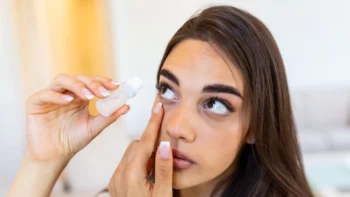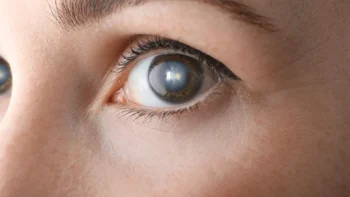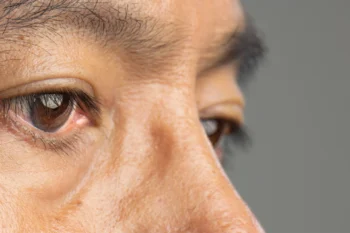Glaucoma is a common eye condition estimated to affect 80 million people globally, three million of those who live in the United States. It’s a progressive eye disease that is the leading cause of blindness if it’s not diagnosed and properly treated on time.
In the beginning, people with glaucoma don’t notice any symptoms. This is why this progressive eye disease has earned the nickname “the silent blinder.” In fact, reports suggest that only about half of the people with glaucoma know they have it.
Glaucoma is the leading cause of blindness in those over 60. This chronic condition causes damage to the optic nerve, which is responsible for transmitting images to your brain.
Optic nerve damage causes blind spots to develop that usually go unnoticed until more severe damage has occurred. Unfortunately, once the optic nerve is completely damaged, your eye loses vision.
Anyone can get glaucoma, but certain risk factors can increase the likelihood of developing it. Some people who are at higher risk include:
- People with a family history of glaucoma
- People who have diabetes
- African Americans over age 40
- Anyone over 60
What Causes Glaucoma?
There are several different kinds of glaucoma, so there can be more than one cause. The most common type of glaucoma is primary open-angle glaucoma, which is caused by the clogged drainage channels in your eye over time. Eye fluid, called aqueous humor, normally flows out of your eye through a meshy channel. The liquid can build up over time if there’s a blockage in the channel. This then causes an increase in pressure, which causes damage to the optic nerve.
Experts aren’t sure how or why the blockage happens, but genetics does play a role. If one of your parents or siblings has glaucoma, you have a higher risk of having it or possibly passing it on to your children.
Angle-closure glaucoma happens when your iris is too close to the drainage angle in your eye, so the iris then blocks the drainage channel. Secondary glaucoma is caused by an underlying eye condition, such as inflammation. While very rare, childhood glaucoma can develop in young children and is caused by eye abnormalities.
Signs and Symptoms To Look Out For
For glaucoma, when to see a doctor can be a tricky question to answer since it usually develops quite slowly. Most people only start to notice signs and symptoms as their vision worsens.
When the optic nerve is damaged, people develop small blind spots in their peripheral vision or on the side of their eye. These blind spots don’t become noticeable until the nerve already has significant damage.
Symptoms of open-angle glaucoma are usually present in both eyes, but it is possible only to have glaucoma in one eye. Other noticeable symptoms can include blurry vision or seeing rainbow-colored halos around lights.
Symptoms of angle-closure glaucoma are easier to notice and occur more quickly compared to those of open-angle glaucoma. If you notice these signs, you should talk to your eye doctor as soon as possible:
- A narrowed field of vision
- Nausea
- Vomiting
- Headache
- Severe eye pain
- Redness in your eye
- An eye that looks hazy (especially in young babies)
- Reduced vision
- Halos in your vision
Some of these symptoms can overlap with other health conditions, but seeking treatment is essential anyway. Getting a correct and early diagnosis can prevent blindness or irreversible vision loss.
Tests for Diagnosing Glaucoma
If you suspect you may have glaucoma, your eye doctor will ask you about your medical history and if anyone in your family has glaucoma. Next, they will perform a complete eye exam to test your vision. Your eye doctor will test how well you can see at different distances and then measure your peripheral vision.
Usually, your eye health provider will dilate your eyes with eye drops so they can get a better look at your optic nerve and retina. They may take photos of your optic nerve to compare for future appointments.
In addition to looking at the optic nerve, your doctor will also perform a gonioscopy, which looks at the drainage angle of your eye and if there is any damage.
Another test they can perform is called tonometry, which measures the fluid pressure inside your eye. Your eye doctor may also order a pachymetry, which measures your corneas’ thickness.
Treating Glaucoma
There is no way to recover the damage that’s already been done to your eyes because of glaucoma, but the proper treatment can help to stop future damage. Your eye doctor will tailor your treatment plan based on several factors, including your age, health, and medical history.
Daily prescription eyedrop medicine can help lower eye pressure by either reducing the amount of fluid your eye makes or helping the fluid to flow better through the drainage channel.
Eye drops can have side effects like stinging, itching, redness, or irritation. You should let your eye care doctor know if you’re experiencing any of these, and be sure to take your medicine every day as prescribed.
Some people with glaucoma need surgery. There are three types of laser surgery available:
- Iridotomy creates a tiny hole in your iris to help fluid drain.
- Trabeculoplasty opens the drainage area.
- Cyclophotocoagulation treats the middle layer of your eye, reducing fluid production.
You will have regular follow-up appointments with your eye doctor to monitor your symptoms. Be sure to let your doctor know if your vision loss interferes with your daily life or activities. They may be able to recommend rehabilitation services or devices that make it easier to manage low vision.
Brimhall Eye, Your Las Vegas Eye Doctor
Brimhall Eye is a team of Las Vegas eye doctors that specialize in LASIK, laser eye surgery, and cataract surgery.
Ranked in the 99th percentile of ophthalmology practices in the U.S., Brimhall Eye’s team of expert eye care specialists can help develop the most effective glaucoma treatment plan to fit your needs. Reach out and find out how you can preserve your vision and stop the progression of your glaucoma with the help of Brimhall Eye.





